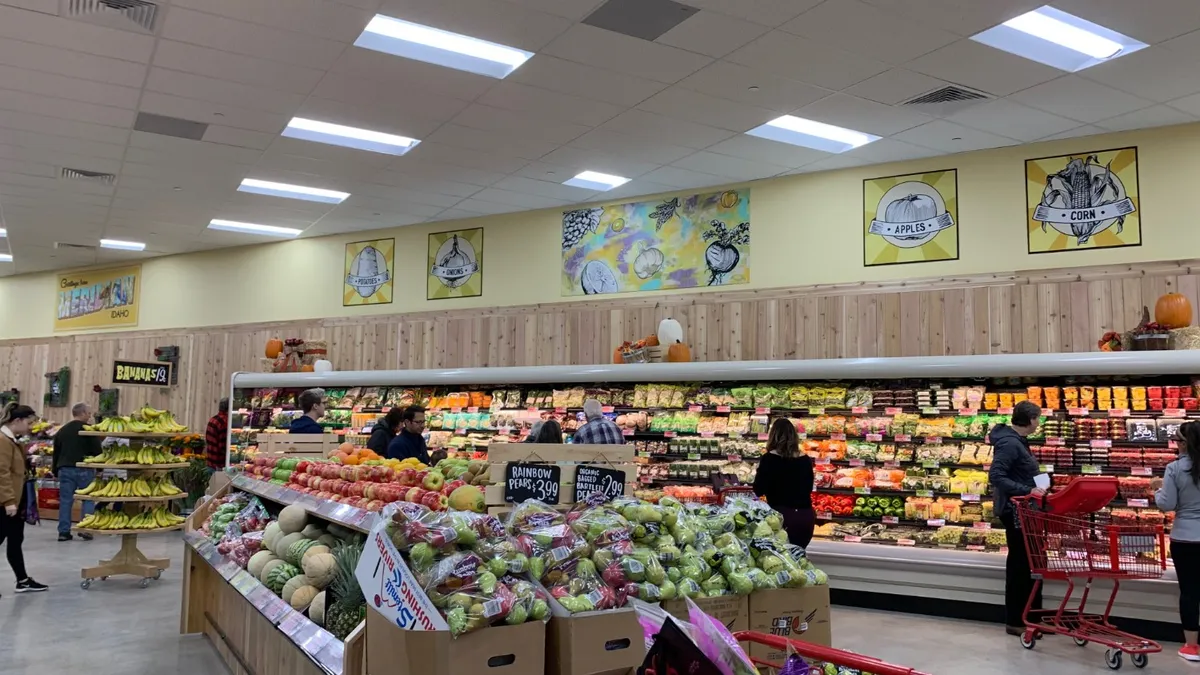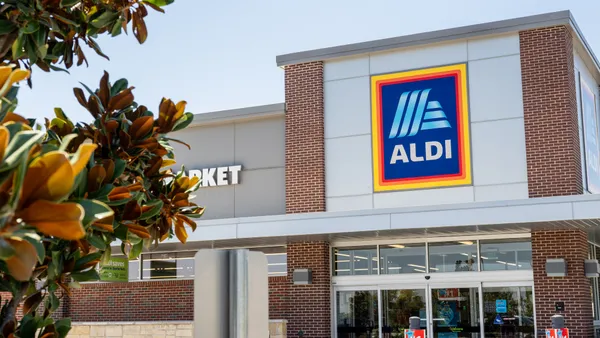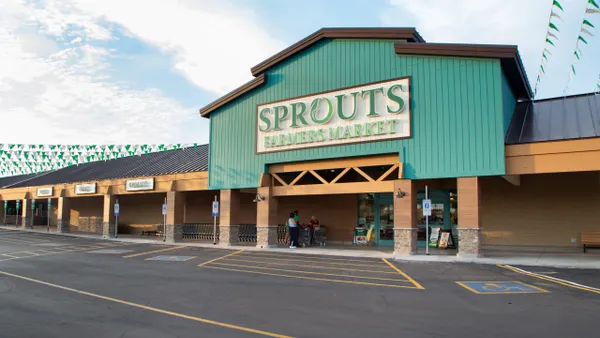Dive Brief:
-
Grocery store operators are offering jobs to restaurant employees left without paychecks as dining rooms across the U.S close down to stop the spread of the coronavirus. The moves come as grocers look to hire hundreds of thousands of employees in response to surging demand from shoppers.
-
Sedano’s, a South Florida grocery chain with about three-dozen locations, has agreed to hire as many as 400 workers of Valls Group, which operates more than 10 restaurants in the Miami area, according to an announcement from the companies. Sedano’s, which shares an advertising agency with Valls Group and sells coffee that carries the brand of one of the Valls-owned restaurants, is planning to place between 15 and 20 Valls Group employees at each of its stores, where they will perform cleaning duties and work as cashiers, stock clerks and cooks, according to the Miami Herald.
- Giant Eagle, which operates grocery stores in Indiana, Maryland, Ohio, Pennsylvania and West Virginia, is partnering with the Pittsburgh Penguins to hire people who work in the hockey team’s arena, and Primanti Bros., a chain of sandwich shops, according to a press release. Cava, a chain of Meditteranean-themed restaurants, announced it is trying to place workers in local grocery positions.
Dive Insight:
The grocery industry is providing a lifeline to restaurant workers left without paychecks as their employers are forced to close their dining rooms amid the mounting coronavirus crisis.
Grocery stores are among a handful of sectors flush with jobs as the virus forces much of the economy to a standstill, according to Challenger, Gray & Christmas, an outplacement firm. Walmart announced plans to hire an additional 150,000 workers while Kroger seeks 10,000 more associates to man its cash registers, stock shelves and more.
The grocery industry is in a unique position to snap up laid-off restaurant workers given that both industries rely on people trained to prepare and sell food. Other businesses that are in hiring mode amid the crisis, such as healthcare, shipping and pharmacy companies, generally are looking for workers with different backgrounds.
In another sign of the key role the grocery industry is playing in providing employment to people whose paychecks depend on the food business, Lineage, a food logistics company, is tapping demand from grocers to provide work for people in restaurant-related positions, Forbes reports. The company has moved workers from warehouses that serve restaurants to facilities it operates that serve grocers, which are looking for more space, according to Forbes.
In addition to creative staffing partnerships, restaurants and foodservice companies are trying to funnel their food supply into grocery stores. Last week, the Food Industry Association and the International Foodservice Distributors Association announced a program that links foodservice companies that have excess goods with the grocery stores and warehouses that need them.
Restaurants are also offloading their food supply by establishing small storefronts. In California, a restaurant operator started a no-touch drive-up market where customers can place orders from their car and have ingredients like produce, eggs and milk placed in their trunks.










